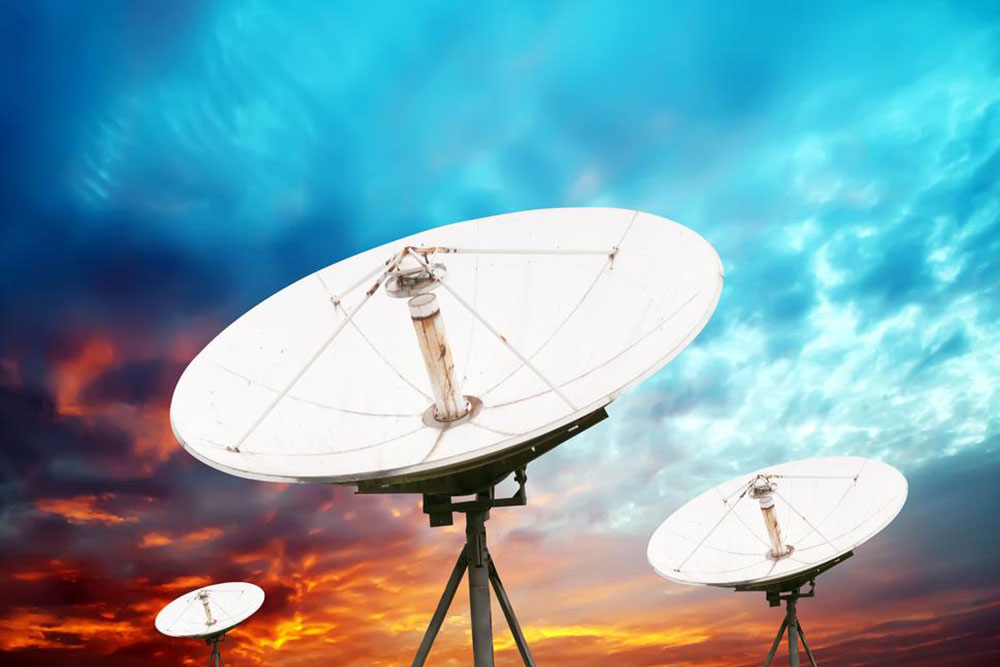Comprehensive Guide to Choosing the Best Wireless Internet Service Provider
This comprehensive guide provides detailed strategies for choosing the best wireless internet service provider. It covers assessing your usage, selecting connection types, comparing costs, understanding data caps, and reviewing contract terms. Following these tips ensures you get a reliable, fast, and affordable internet plan tailored to your needs, whether for streaming, gaming, remote work, or everyday browsing. Make smarter decisions and enjoy seamless connectivity with expert advice on selecting the ideal wireless internet service.

In today's digitally connected world, having a reliable wireless internet connection is essential for both personal and professional activities. Wireless internet, commonly referred to as Wi-Fi, offers the convenience of seamless connectivity across various devices such as smartphones, laptops, tablets, and smart home gadgets. With a multitude of internet service providers (ISPs) each offering different plans, speeds, and prices, selecting the right wireless internet service can be a daunting task. Making an informed choice ensures you get fast, stable, and cost-effective internet service tailored to your needs. This detailed guide provides comprehensive strategies and key considerations to help you choose the ideal wireless internet service provider that aligns with your usage patterns and budget.
Assessing Your Internet Usage for Better Decisions
The first step towards selecting the right wireless internet plan is understanding your household’s internet consumption habits. This involves analyzing how many people use the internet simultaneously, the types of activities performed, and the number of connected devices. For example, if your household only browses websites and checks emails occasionally, a basic plan with moderate speeds might suffice. However, if you stream high-definition videos, engage in online gaming, or work from home frequently, higher-speed plans become necessary.
To accurately gauge your needs, consider the following activities:
Web browsing and email: Minimal bandwidth required
Video streaming in HD or 4K: Requires at least 25 Mbps per stream
Online gaming: Preferably 50 Mbps or higher for smooth gameplay
Video conferencing and remote work: 25-50 Mbps depending on the number of users
Downloading large files or backups: Faster speeds reduce wait times
Typically, basic household users might need internet plans offering 100 Mbps, while power users or large families benefit from gigabit plans offering 1 Gbps or more. Matching your plan to your needs avoids overspending on unnecessary features and ensures optimal performance.
Selecting the Appropriate Connection Type
Different internet connection types offer varying levels of speed, reliability, and cost. Your choice influences the overall quality of your internet experience. The primary options include fiber optic, cable, 5G home internet, satellite, and DSL. Each has its advantages and limitations:
Fiber Optic Internet: Provides the fastest, most stable speeds with symmetrical upload and download rates. Ideal for heavy activities like 4K streaming, large file uploads, and gaming. However, fiber availability may be limited in some areas, and installation can be more expensive.
Cable Internet: Widely available and offers high speeds suitable for most household needs. Generally more affordable than fiber but may experience congestion during peak hours, impacting speed.
5G Home Internet: Uses mobile network technology to provide fast internet without physical cables. Suitable for suburban or rural areas where fiber or cable isn't available. Speeds can vary depending on network coverage.
Satellite Internet: Best for remote locations but usually has higher latency and data caps. Not ideal for activities requiring real-time responsiveness.
DSL: Offers moderate speeds but is often outdated compared to newer technologies. It's a cost-effective option in some regions with limited optical fiber or cable options.
Choosing the right type involves evaluating your location, required speeds, and budget. Fiber, while costlier, provides the most future-proof and reliable connection, whereas cable and 5G present more flexible options depending on availability.
Cost and Value Considerations
Pricing transparency and value for money are critical factors when selecting an internet plan. Providers often offer promotional rates for new customers, but these can increase upon renewal. To make an informed decision, compare the costs against the speeds offered.
Calculate the price per Mbps to evaluate value. For example, if provider A offers 150 Mbps at £20 per month, the cost per Mbps is approximately 13.3p. Meanwhile, provider B offers 500 Mbps at £45, which equals around 9p per Mbps. This suggests that provider B provides better value for higher speeds, particularly if your household’s activities demand more bandwidth.
Besides initial pricing, consider any additional costs such as equipment rentals, installation fees, or service charges. Sometimes, paying a slightly higher monthly fee can provide better overall value through faster speeds or more reliable service.
Understanding Data Caps and Usage Limits
Many internet plans come with data limits, which can affect heavy users. Surpassing these caps often results in extra charges or throttling speeds, leading to frustrating interruptions. If your internet activities involve high-volume streaming, gaming, or multiple users, choose plans offering unlimited data or very high caps.
It’s advisable to analyze your typical monthly usage, including streaming hours, download sizes, and number of connected devices. Selecting a plan with a generous or unlimited data allowance ensures uninterrupted service and prevents unexpected costs.
Router and Equipment Fees
Most ISPs provide a router, either included in the plan or rented for a monthly fee, typically between €4 and €10. Some providers offer free or discounted equipment if you sign a long-term contract or bundle services. It’s essential to clarify whether renting equipment is mandatory or if purchasing a personal router is a better long-term investment.
Having your own router can save money over time and give you better control over network security and features. When selecting equipment, ensure compatibility with your internet connection type and consider features like dual-band Wi-Fi, multiple Ethernet ports, and security protocols.
Contract Terms and Flexibility
Internet plans are often offered with different contract durations. Monthly plans provide maximum flexibility, allowing cancellation or plan changes anytime, but may come at higher monthly costs. Annual or longer-term contracts often provide discounts and more stable pricing but limit flexibility.
Always read the fine print regarding early termination fees, renewal conditions, and service guarantees. Choosing the right contract depends on your stability and willingness to commit long-term versus your need for flexibility.
Identifying Hidden Fees and Additional Charges
Before signing a plan, thoroughly review the terms and conditions to uncover hidden costs. Common additional charges include installation fees, equipment replacement costs, activation fees, and service charges for exceeding data limits or premium support.
Being aware of these potential costs helps prevent surprises on your bill and allows you to compare providers more accurately.
Maximizing Savings with Promotional Offers
Many ISPs run introductory promotions, discounts, or bundle deals with other services like TV or phone plans. To maximize savings, actively search for current deals online or contact providers directly for special offers. Signing up during promotional periods or negotiating with customer service can secure better rates.
In conclusion, selecting the most suitable wireless internet service involves evaluating your usage needs, understanding available connection types, comparing costs, and paying attention to contract details and hidden fees. By following these comprehensive strategies, you can ensure a reliable, fast, and cost-efficient internet connection that enhances your digital life.





